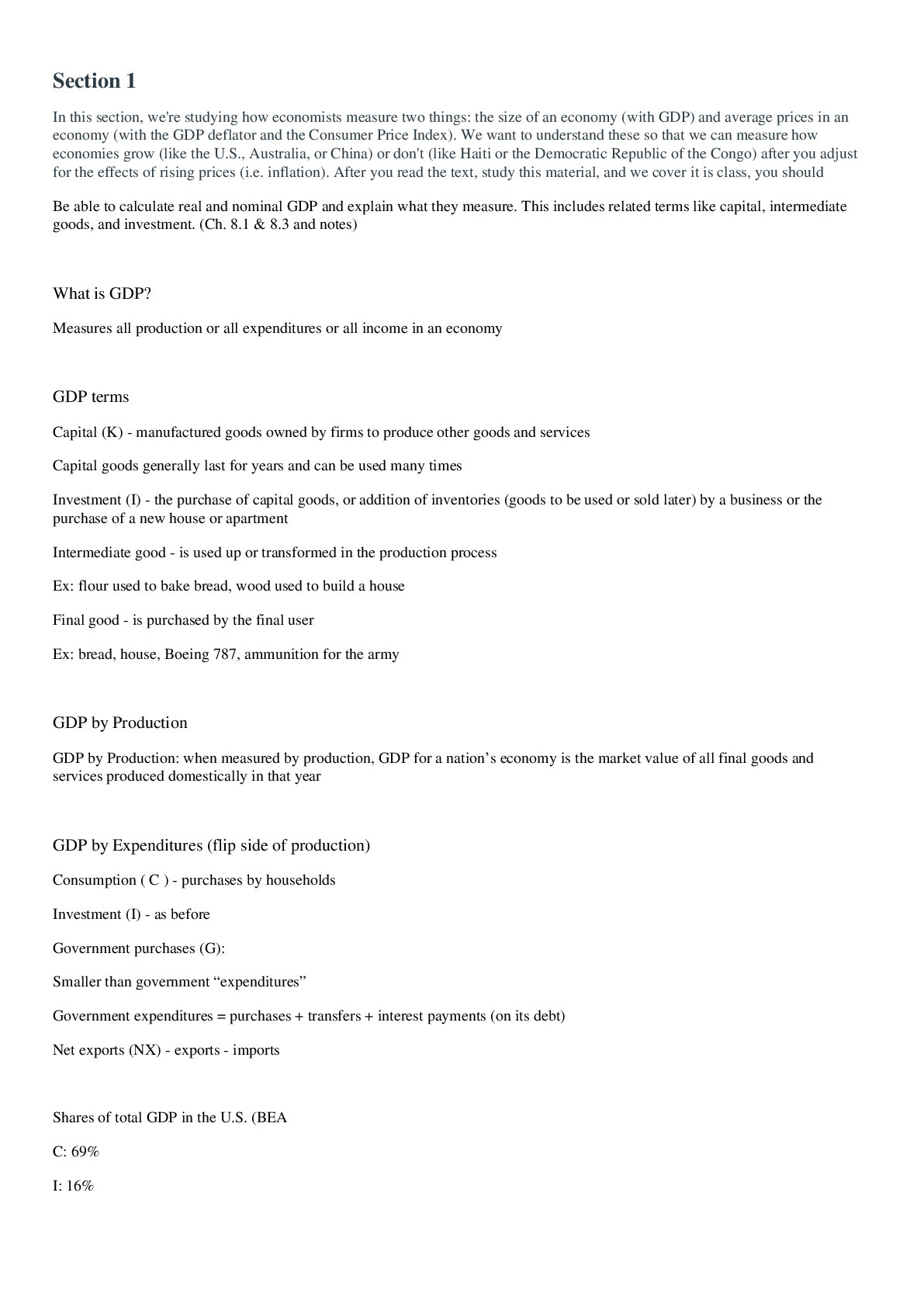ATI RN PHARMACOLOGY > EXAM > RN PHARMACOLOGY ONLINE PRACTICE A STUDY QUESTIONS WITH ANSWERS 100% VERIFIED GUARANTEED PASS | RATED (All)
RN PHARMACOLOGY ONLINE PRACTICE A STUDY QUESTIONS WITH ANSWERS 100% VERIFIED GUARANTEED PASS | RATED A+
Document Content and Description Below
A nurse in an emergency department is caring for a client who has myasthenia gravis and is in a cholinergic crisis. Which of the following medications should the nurse plan to administer? A. Potassi... um iodide B. Glucagon C. Atropine D. Protamine - Answer>>>C. Atropine Rationale: A cholinergic crisis is caused by an excess amount of cholinesterase inhibitor, such as neostigmine. The nurse should plan to administer atropine, an anticholinergic agent, to reverse cholinergic toxicity. Potassium iodide is a thyroid hormone antagonist used in the treatment of radioactive iodine exposure. Glucagon is an antihypoglycemic medication used in the treatment of low blood glucose levels. Protamine is a heparin antagonist that is administered to reverse heparin toxicity evidenced by an aPTT greater than 70 seconds. A nurse is providing teaching to a client who has peptic ulcer disease and is to start a new prescription for sucralfate. Which of the following information should the nurse include in the teaching? A. Decreases stomach acid secretion B. Neutralizes acids in the stomach C. Forms a protective barrier over ulcers D. Treats ulcers by eradicating H. pylori - Answer>>>C. Forms a protective barrier over ulcers Rationale: Secretions by the parietal and chief cells, hydrochloric acid and pepsin, can further irritate the ulcerated areas. Sucralfate, a mucosal protectant, forms a gel-like substance that coats the ulcer, creating a barrier to hydrochloric acid and pepsin. A common cause of peptic ulcers is a bacterial infection with Helicobacter pylori. Treatment of the ulcer includes a combination of antibiotics, such as metronidazole, tetracycline, clarithromycin, or amoxicillin, to eradicate the H. pylori infection. Peptic ulcer disease manifests as an erosion of the gastric or duodenal mucosa. The acid production in the stomach causes further irritation and pain. H2 receptor antagonists, such as famotidine, decrease stomach acid secretion. Acid production in the stomach causes further irritation and pain to a client who has a peptic ulcer. Antacids, such as aluminum hydroxide, neutralize acids in the stomach and prevent pepsin formation, a digestive enzyme that can further damage the eroded epithelium. [Show More]
Last updated: 6 months ago
Preview 5 out of 55 pages

Loading document previews ...
Buy this document to get the full access instantly
Instant Download Access after purchase
Buy NowInstant download
We Accept:

Also available in bundle (1)
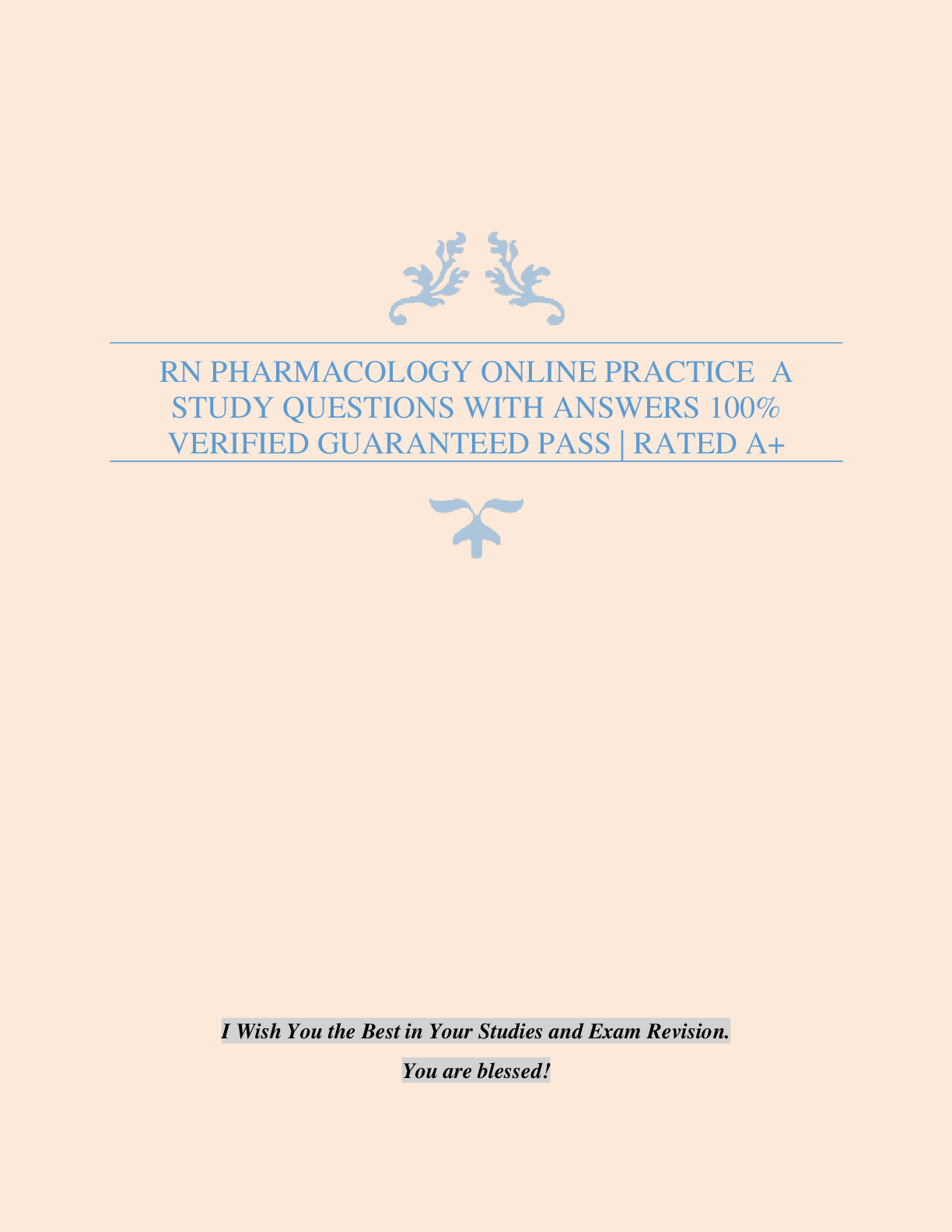
RN PHARMACOLOGY ONLINE PRACTICE, RN PHARMACOLOGY ONLINE PRACTICE A EXAMS BUNDLE
RN PHARMACOLOGY ONLINE PRACTICE, RN PHARMACOLOGY ONLINE PRACTICE A EXAMS BUNDLE
By A+ Study Guides 6 months ago
$26
2
Reviews( 0 )
$20.50
Can't find what you want? Try our AI powered Search
Document information
Connected school, study & course
About the document
Uploaded On
Jan 17, 2025
Number of pages
55
Written in
Additional information
This document has been written for:
Uploaded
Jan 17, 2025
Downloads
0
Views
27

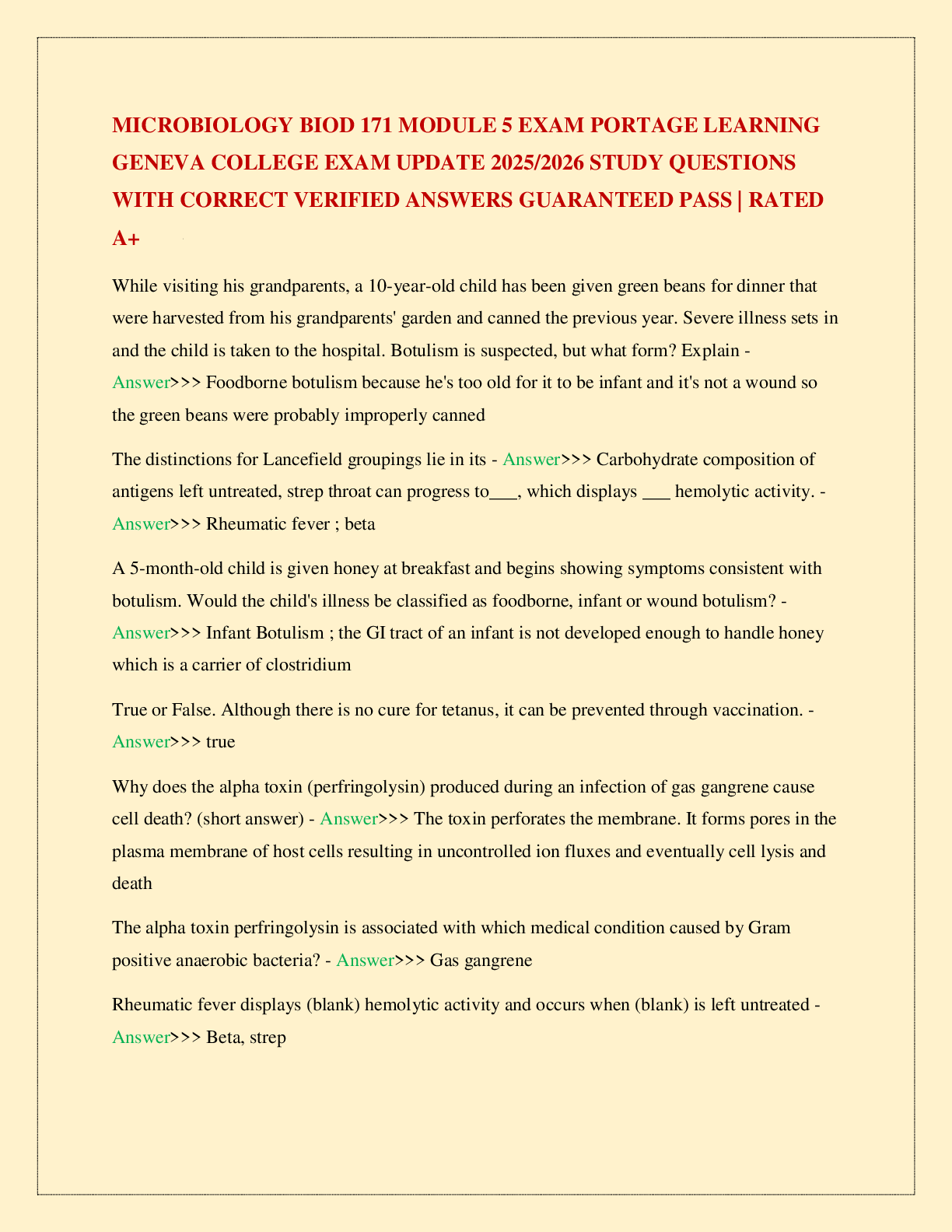
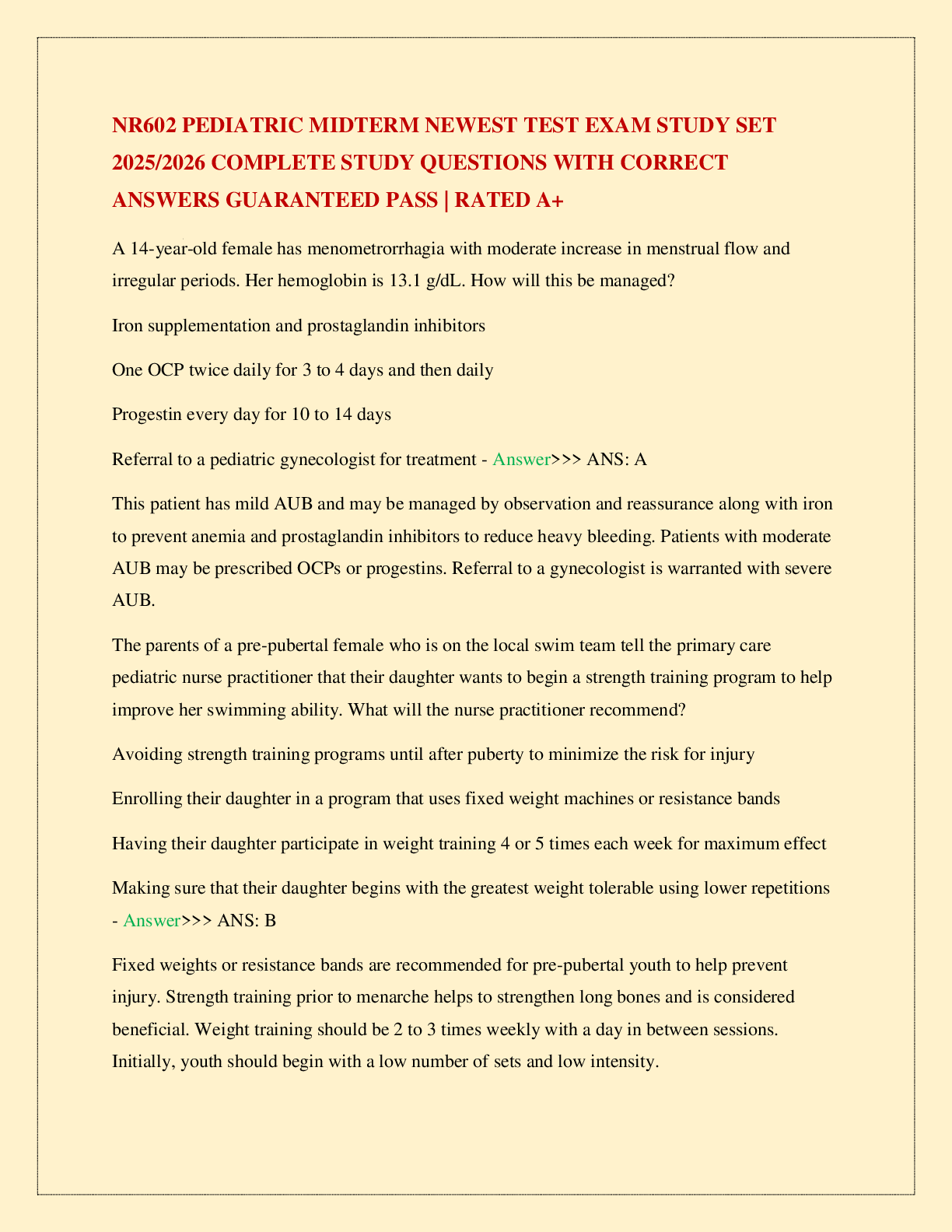

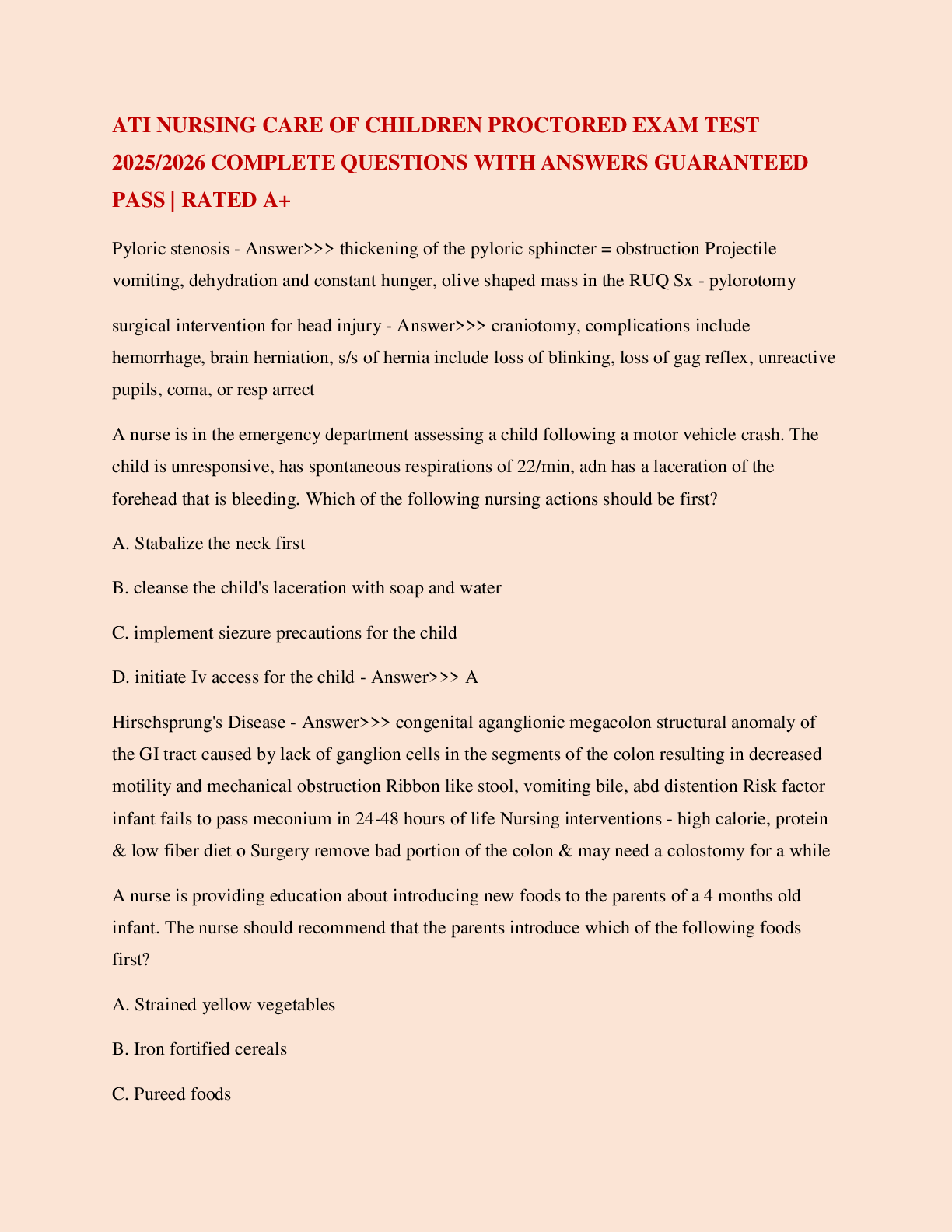

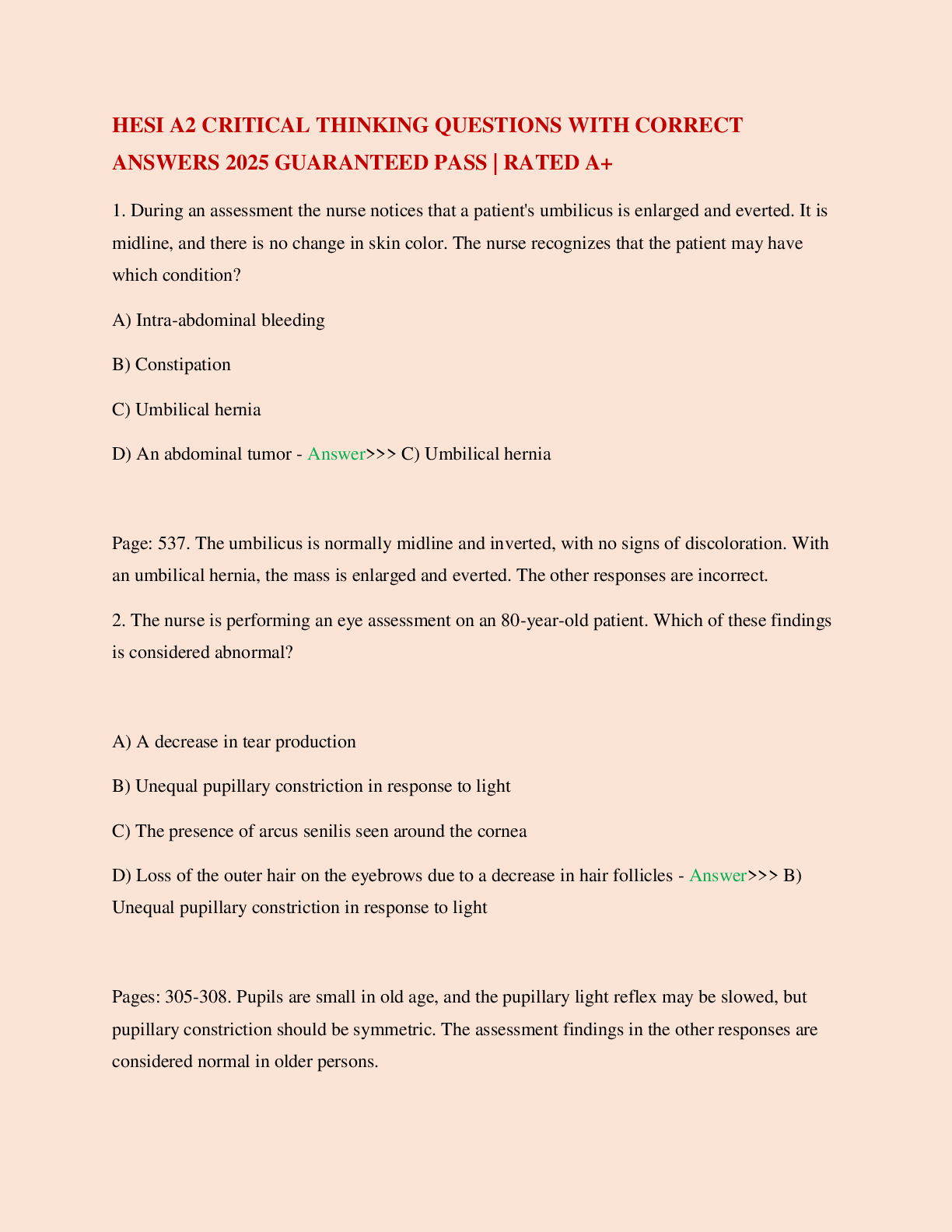
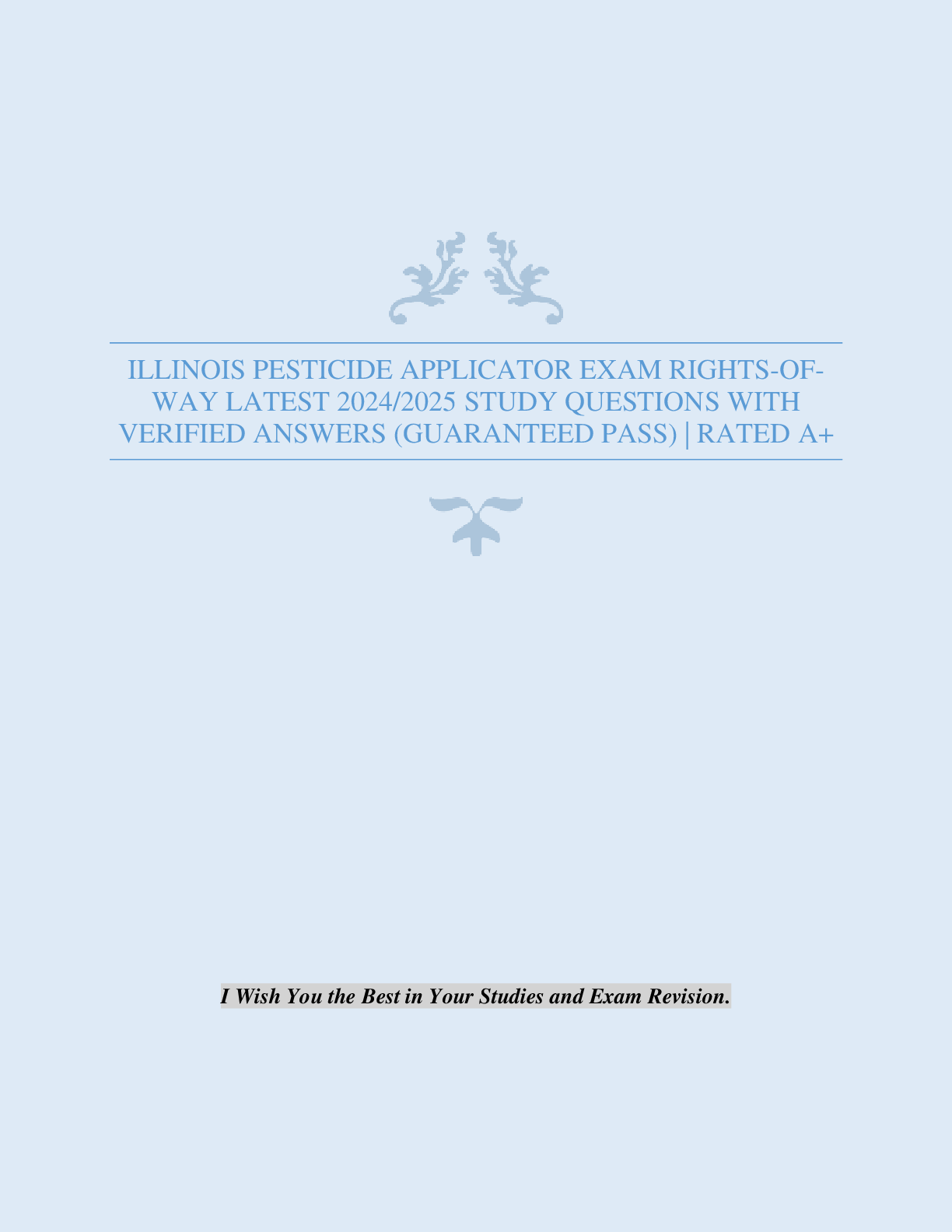

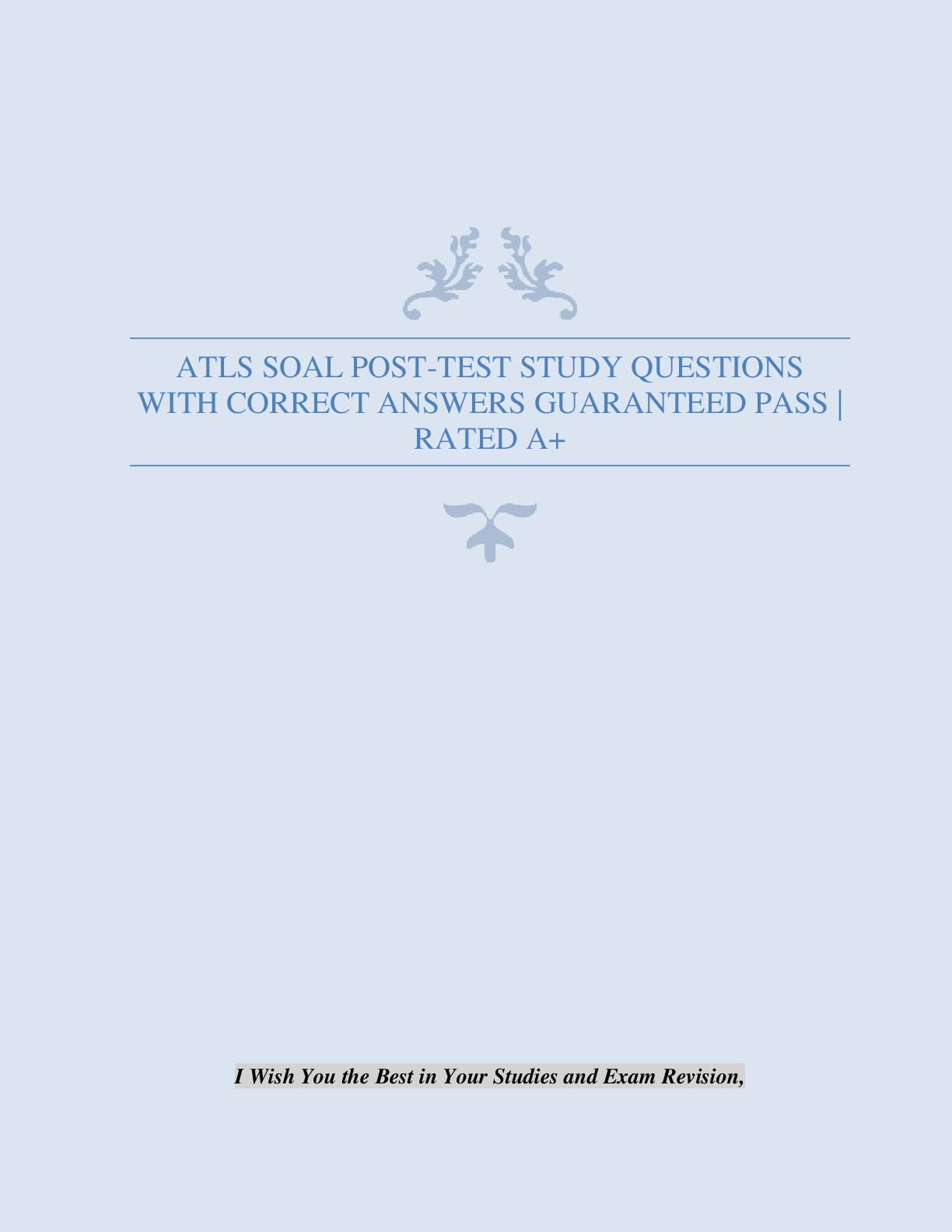
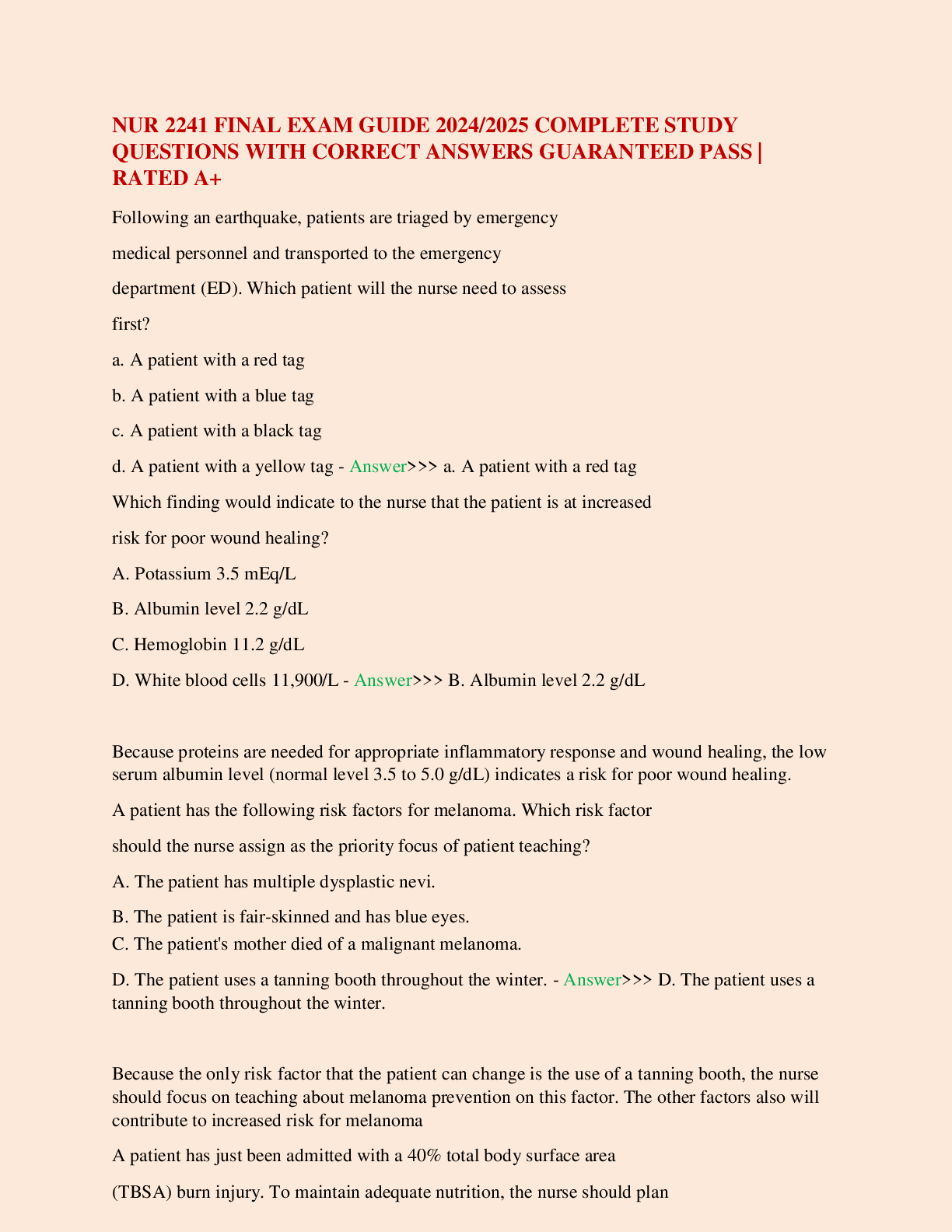
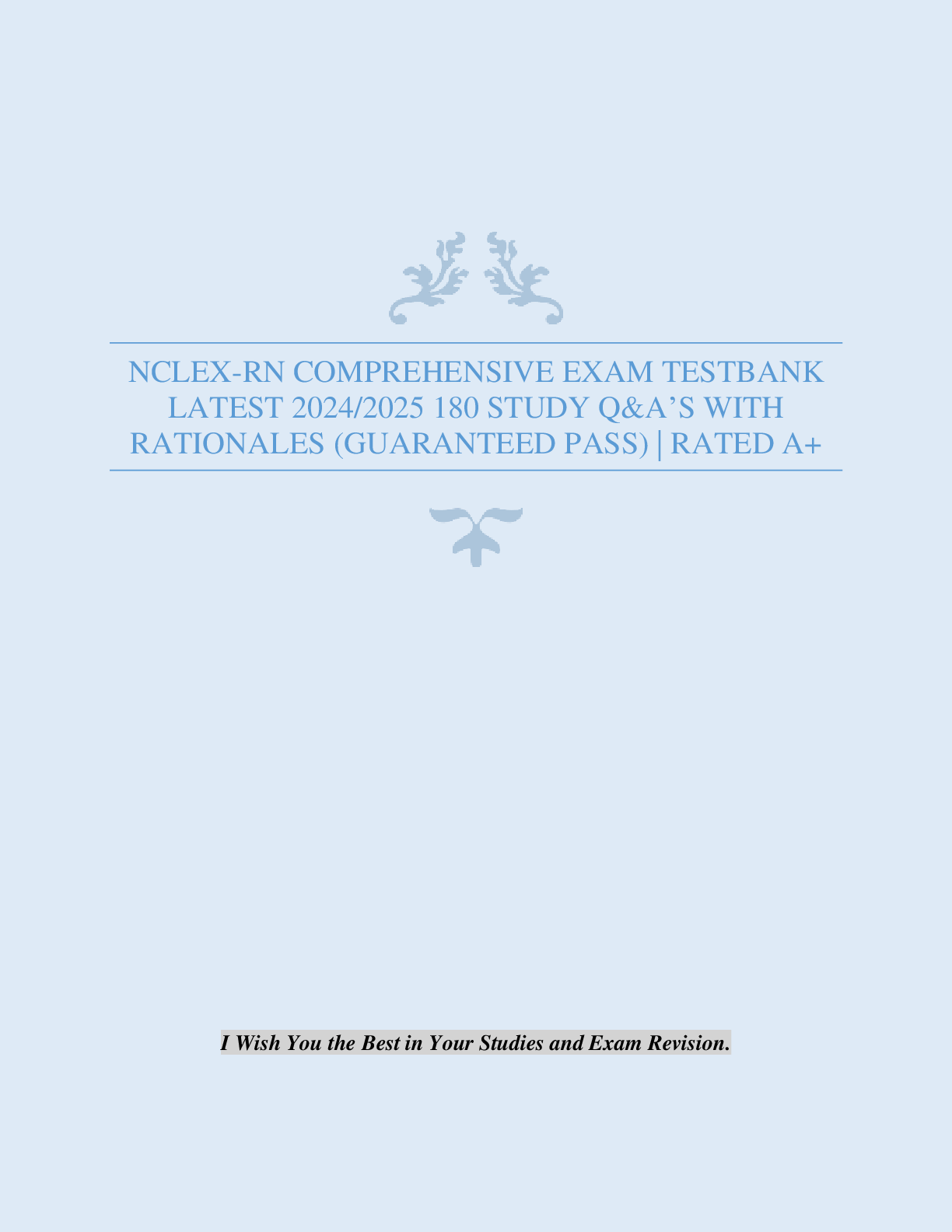
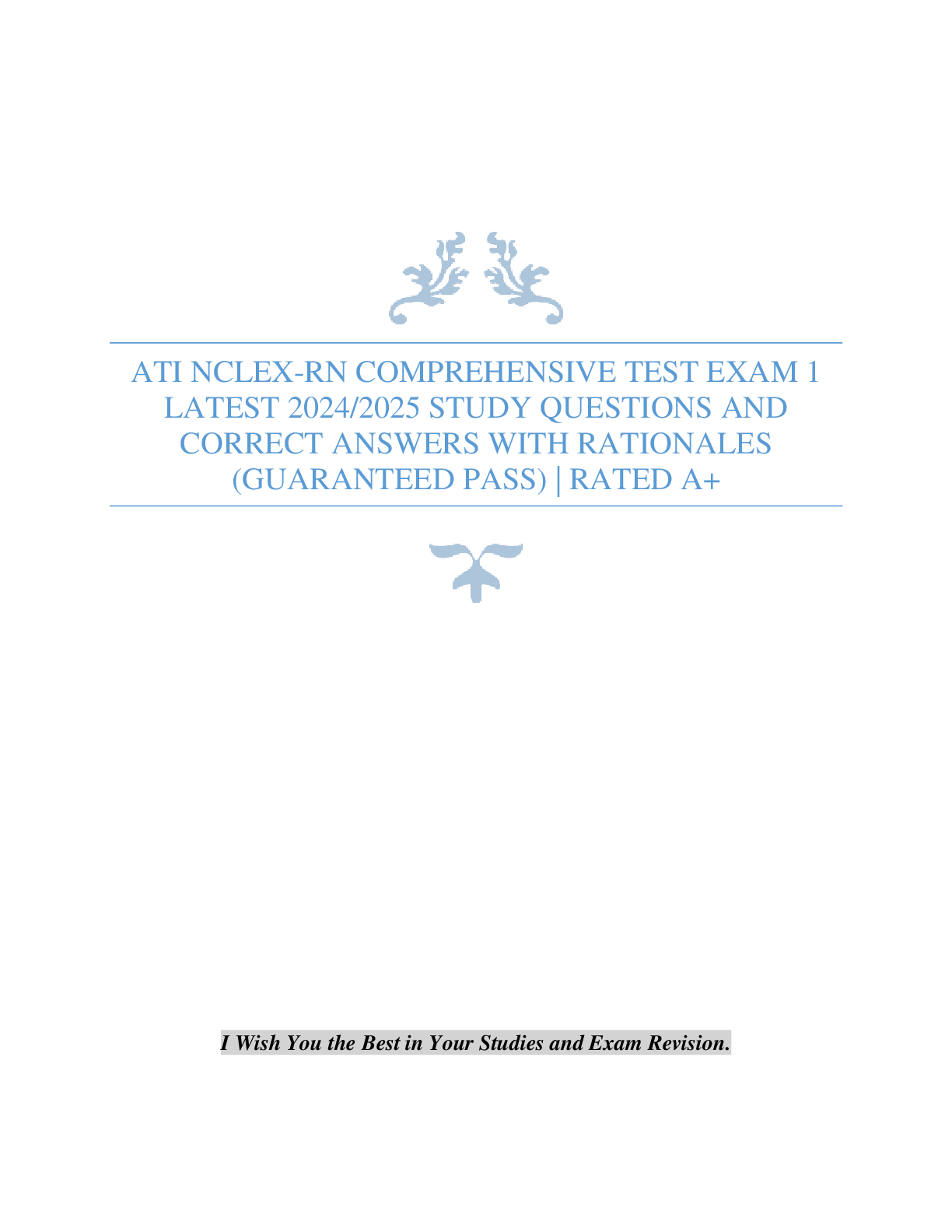




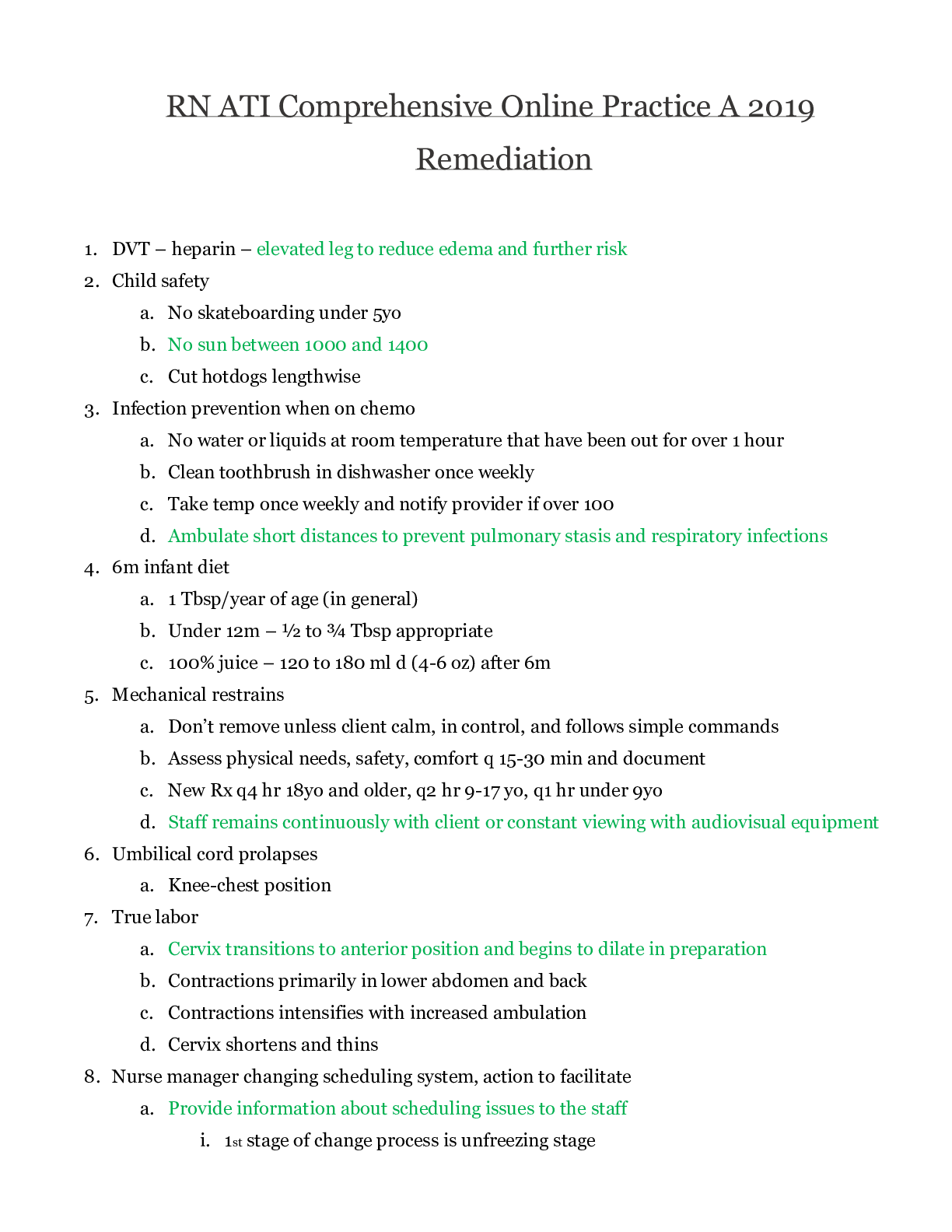
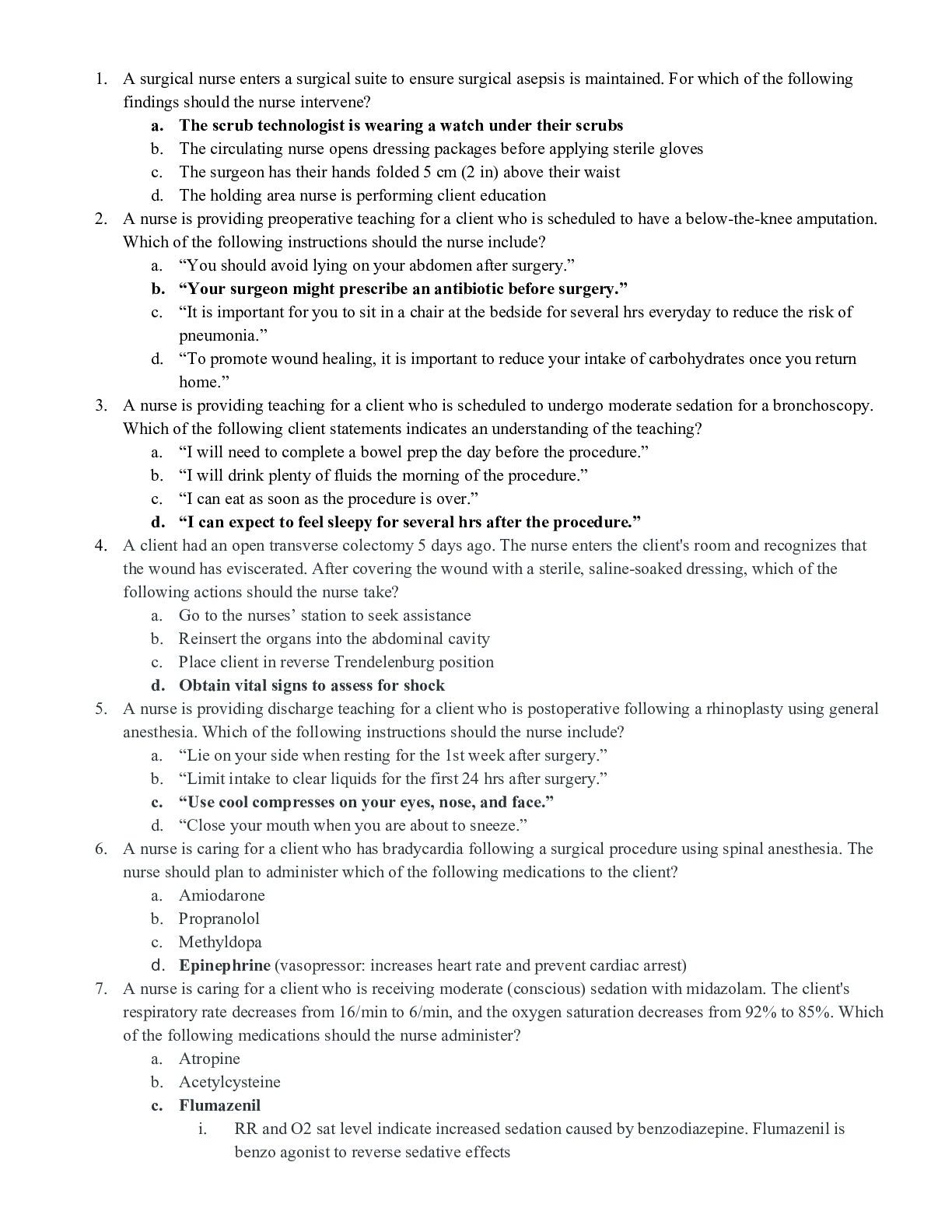

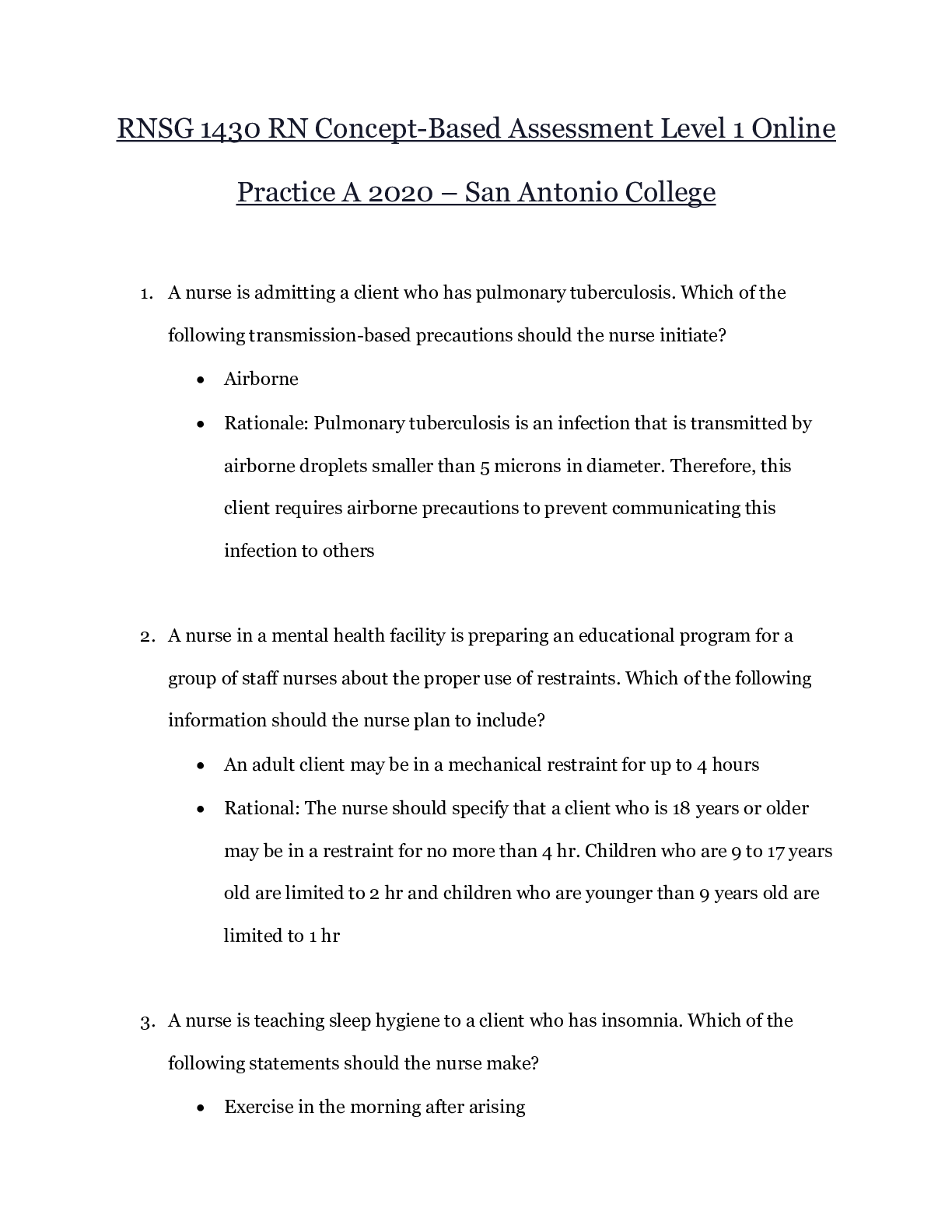

.png)

